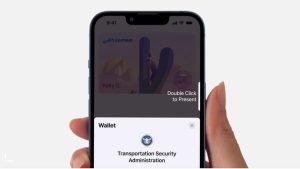New research has found that 96 percent of apps used in K-12 schools send student data to third parties, including advertisers.
Cook County, Illinois, has announced a major update to its 2010-2020 Census Demographics App. The newly updated interactive map makes it easier to identify a variety of demographic changes that took place in Cook County on a census-tract level between 2015 and 2020.
Southeastern Pennsylvania Transportation Authority (SEPTA), a regional public transportation authority, is launching a mobile ticketing pilot program that allows riders to purchase tickets for one or more people using a smartphone.
Joining Maryland, Nebraska, and South Dakota, five additional states have banned the social media platform TikTok from government devices.
The Rhode Island Seafood Marketing Collaborative (RISMC), public-private body that aims to support local fishermen and seafood farmers, has launched FishLine, a mobile app and redesigned website that aim to bring awareness to Rhode Island’s local seafood market.
The city of Charlotte, N.C., has launched the TravelSafely App, intended to improve safety for motorists, pedestrians and bicyclists by connecting users to an electronic network of intersection and crosswalk data.
California’s Earthquake Early Warning System was able to warn 2.2 million people via built-in smartphone capabilities and the MyShake app before an Oct. 25 earthquake.
In a move to advance school safety, Oklahoma K-12 and charter schools will now be able to use an anonymous tip application. The new app will allow students, staff, and parents to confidentially share concerns about safety threats.
North Dakota Information Technology (NDIT) launched the first-ever state-developed digital credential application on August 24, coined with the term “digital wallet.” According to the press release, it allows users to present their high school transcript digitally. Students can have all their degrees, certifications, badges, and skills located in one accessible and secure application. “These digital […]
Arizona is now the first state to offer residents the option of storing their digital driver’s license or state ID card in their Apple Wallet.













